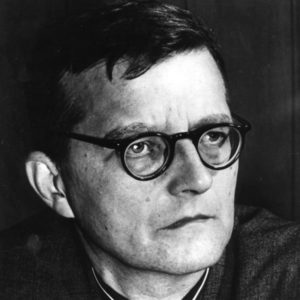GRAMOPHONE: From Where I Sit – Awards Issue 2021
 Richard Bratby’s affectionate tribute to glorious Malcolm Arnold on the 100th anniversary of his birth (September issue) has prompted a few reflections of my own. Not least among them was the weekend I included the slow movement of his Fifth Symphony in my playlist for the Breakfast Show on Radio 3 (in those days playlists were largely presenter-curated). Waxing lyrical about the piece which only this year bowed in at the BBC Proms (thank you, Sakari Oramo) I made a somewhat capricious reference to the string melody of the slow movement as Arnold’s Adagietto once it had outgrown that other 5th symphony. I received a card from the great man (doubtless by way of his secretary/carer) thanking me for thinking of him. Just that.
Richard Bratby’s affectionate tribute to glorious Malcolm Arnold on the 100th anniversary of his birth (September issue) has prompted a few reflections of my own. Not least among them was the weekend I included the slow movement of his Fifth Symphony in my playlist for the Breakfast Show on Radio 3 (in those days playlists were largely presenter-curated). Waxing lyrical about the piece which only this year bowed in at the BBC Proms (thank you, Sakari Oramo) I made a somewhat capricious reference to the string melody of the slow movement as Arnold’s Adagietto once it had outgrown that other 5th symphony. I received a card from the great man (doubtless by way of his secretary/carer) thanking me for thinking of him. Just that.
Thinking of him now in the light of Bratby’s comments I feel moved to offer some theories of my own as to why Arnold’s music has been slow to receive the recognition it so richly deserves and why, as Antony Hopkins observed, ‘Everything that people love about Mahler is somehow turned into a negative with Arnold’. Just so. It has to do with his openness, his audacity, his determination to push the boundaries of what the musical snobs past and present might regard as ‘over the top’ or ‘in questionable taste’. His remarkable movie scores won’t have enhanced his image with the musical ‘establishment’ either (although it didn’t do Walton any harm), and then there was his association with Gerard Hoffnung giving free rein to his gift for the comedic and parodistic in A Grand, Grand Overture. Heaven forbid, he had a sense of humour.
With regard to humour it was his very English way with that powerful tool ‘irony’ which set some teeth on edge. Those jaunty and ever so slightly cheesy woodwind tunes (with their distinctive ‘curling’) immediately identify the composer and enter from left-field like a succession of Till Eulenspiegels. For me they have an air of Ealing Comedy about them – which probably explains why Arnold was so at home at St Trinian’s.
As a percussionist I played his 2nd Symphony a couple of times with the Ernest Reed Orchestra under the irrepressible Terrence Lovett. I enjoyed growing to love it from the inside out, as it were, and remember the first-time thrill of that sunny clarinet tune returning so effulgently at the climax of the first movement or the blazing tattoo of timpani and brass at the apotheosis of the finale so redolent of the equivalent moment in Walton’s 1st Symphony. Lovett was great at encouraging not inhibiting his enthusiastic young players and his favourite reprimand – ‘butchers!’ – was his way of indicating that there was room for improvement.
But the darker recesses of Arnold, the man and his music, set him apart from the ‘second division’ labelling that some still attach to him. How telling that Oramo, hailing as he does from beyond these shores, thinks the Fifth Symphony a masterpiece – especially since none of the big pieces better embodies Arnold’s quixotic nature and the highs, lows, and dramatic contradictions, good, bad and ugly that make the music – warts and all – so compelling

STEPHEN SCHWARTZ: WICKED at 15
You May Also Like

GRAMOPHONE: From Where I Sit – April 2021
21/04/2021
BBC Radio 2 Arts Show with Claudia Winkleman
12/10/2014
